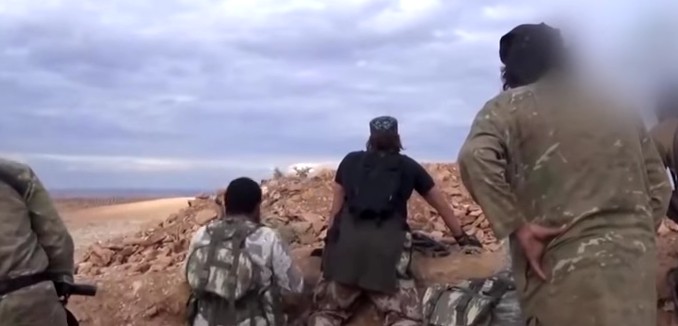Congress passed legislation Tuesday that would increase military aid and facilitate arms sales to Jordan, bolstering the country’s fight against the Islamic State of Iraq and Syria (ISIS). The bill now heads to the Senate.
International Business Times reported:
The measure will put Jordan on the same level as the North Atlantic Treaty Organization (NATO) countries for three years. This means that the country reportedly will benefit from “expeditious consideration” that will accelerate the review of arms exchanges. Apart from the NATO alliance, the privilege is extended to Australia, Israel, Japan, New Zealand and South Korea. …
“Jordan sits on the front lines of the fight against ISIS and a refugee crisis in Syria where millions have been displaced,” Ed Royce, chairman of the House Foreign Affairs Committee, said, according to Agence France-Presse. “As a longtime key partner for peace and security in the region, it is important the U.S. support Jordan as it confronts these security challenges.”
About 630,000 Syrian refugees have taken shelter in Jordan, the Hill reported, citing the United Nations.
The United States has already sent close to $500 million to Jordan in humanitarian aid for the care of Syrian and Iraqi refugees. The Financial Times reported last week that Jordan may enforce a humanitarian buffer zone in southern Syria, which would deter ISIS and other militarized factions from advancing towards the Jordanian border while protecting Syrian refugees. While the zone would be protected largely by “existing fighters in the anti-Assad rebel southern brigades,” Jordanian forces would provide training and support.
Al-Jazeera reported:
Along with Turkey, Syria’s neighbor to the north, Jordan has long called on its Western allies to help set up buffer zones, usually citing the need to relieve the enormous pressure it is shouldering as home to more than one million Syrian refugees. Amman argues that providing a relatively safe area on the Syrian side of the border – where international refugee camps could be set up and humanitarian aid could filter in – would shift the burden onto the international community and stem the flow of Syrians into impoverished, water-poor Jordan.
“Jordan has spillover from Syria, spillover from Iraq, it’s a short distance across the Gulf of Aqaba to the Sinai Peninsula – it’s just surrounded by chaos and instability,” said Christopher Harmer, an analyst and Syria expert at the Institute for the Study of War. It has kept itself safe for now, but “if and when factions in Syria turn their attention to Jordan, it’s an open question whether the border is defensible.” …
State Department spokesman Mark Toner said he had seen “no solid evidence” that either Jordan or Turkey were taking steps to set up a buffer zone, implying that the plan did not have Washington’s blessing.
Israel announced this week that it was erecting an 18-mile fence along its border with Jordan, which is currently secured by Jordanian forces, for fear of ISIS advances.
NBC News repoted:
“Because of economic reasons that include poverty and unemployment there is danger that ISIS will be able to infiltrate,” said Oded Eran, a former Israeli Ambassador to Jordan. “A lot of countries like Israel understand the only way to seal off their border is by installing a system of fences.”
Pressure from Israeli citizens spurred the government into action, along with the construction of the Timna Airport. Destined to become the country’s southern aerial gateway, some fear the airport could become a prime target for militants crossing the border.
“In the long run, our wish would be to break down the fence and live peacefully with our neighbors but we understand that in the meantime the reality is different and that the fence is needed,” added Udi Gat, chairman of the Eilot regional council.
The United States, Israel, and Jordan have each taken long-term defensive steps against ISIS in the past few weeks, indicating their expectations of a protracted conflict.
[Photo: NATO / YouTube ]




